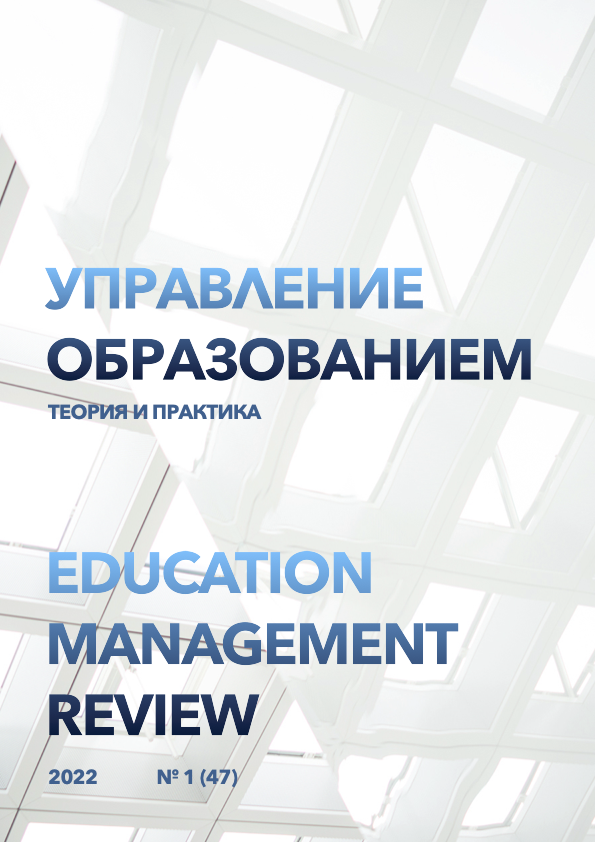Methodological potential of the dystopia genre in the development of students' reading competence
DOI:
https://doi.org/10.25726/t6617-1052-9100-fKeywords:
anti-utopia, utopia, reading competence, motivation, methodology of teaching literature, Orwell, Huxley, BradburyAbstract
The article discusses the characteristic features of dystopias and analyzes the reasons for their popularity among students. The range of problems raised in these works is outlined, and the possibilities of turning to this genre in education, its significant potential in shaping the reading competence of students are outlined. It is noted that in the current situation, when there is a drop in interest in reading, it is this genre that can help to captivate students into the world of literature. An important aspect is the use in the classroom of elements of comparing modern cinema and fiction works, the identification of similar plot features and issues, which contributes to the development of critical thinking. Questions and assignments, recommendations for work in the history of literature classes at colleges and universities have been developed, conditions and stages for holding seminars and discussions have been determined. The ways of solving the problem of increasing the students’ interest in the study of the work of Russian and foreign writers are presented. The dystopian novels proposed for analysis touch upon the problems of freedom and independence of the individual, obtaining value orientations, the role of progress and the dominance of modern scientific technologies in the development of mankind as the closest for the younger generation in search of self-determination.
References
Березина А.В., Колосова Е.А. Чтение современных российских подростков в условиях цифровой реальности // Наука. Культура. Общество. 2021. Т. 27. № 4. С. 122-131. DOI 10.19181/nko.2021.27.4.10/
Волков В.В., Волкова Н.В. Литературная утопия и антиутопия: жанровое своеобразие, аспекты герменевтического исследования // Вестник Тверского государственного университета. Серия: Филология. 2020. № 3(66). С. 26-40. DOI 10.26456/vtfilol/2020.3.026.
Галицких О.Е. Литературное образование и современность: от поисков перспектив к жизни в культуре // Современное литературное образование: от школьных уроков к жизни в культуре. XXV Голубковские чтения: Материалы международной научно-практической конференции, Москва, 23–24 марта 2017 года. Москва: «Экон-Информ», 2018. С. 9-14.
Давыдова И.С. Критерии отбора современной художественной литературы для школьников: взгляд практика // Современное литературное образование: от школьных уроков к жизни в культуре. XXV Голубковские чтения: Материалы международной научно-практической конференции, Москва, 23–24 марта 2017 года. Москва: «Экон-Информ», 2018. С. 193-197.
Денисова Л.В. Антиутопия как форма социально-гуманитарного познания // Восьмой Российский Философский Конгресс «Философия в полицентричном мире». Секции (II). Сборник научных статей. М.: РФО ИФРАН. МГУ. Издательство «Логос», ООО «Новые печатные технологии» (Москва), 2020. С. 2167-2169.
Доманский В.А., Мирнова Н.А., Попова Н.А. Практико-ориентированный подход при изучении русской классики в высшей школе // Язык и культура. 2021. № 55. С. 204-219. DOI 10.17223/19996195/55/13.
Залуцкая С.Ю. Воспитание читателя в условиях образовательной среды вуза: креативный аспект // Профессиональное образование в России и за рубежом. 2018. № 2(30). С. 11-17.
Киктева К.С. Методический потенциал англоязычных антиутопий young adult // Вестник Московского городского педагогического университета. Серия: Педагогика и психология. 2020. № 3(53). С. 76-84. DOI 10.25688/2076-9121.2020.53.3.07.
Ланин Б.А. Картина мира в современной утопии/дистопии/антиутопии // Картина мира в системно-структурном и антропоцентрическом аспектах: поиски общих закономерностей : сборник материалов IX Всероссийской научно-практической конференции, Биробиджан, 30 ноября 2020 года. Биробиджан: Приамурский государственный университет им. Шолом-Алейхема, 2021. С. 62-66.
Лекаревич Е.В. Масскульт для подростков: жанр антиутопии // Детские чтения. 2016. Т. 9. № 1. С. 135-151.
Строева О.В. Судьба антиутопий и неолиберальные ценности в современной сериальной продукции // Наука телевидения. 2020. № 16.4. С. 11-28.
Тузовский И.Д. Дивергенция футурологического алармизма в цифровую эпоху: жанрообразование на основе антиутопий в конце XX - начале XXI вв. // Утопические проекты в истории культуры: Материалы III Всероссийская с международным участием научная конференция, Ростов-на-Дону, 01–03 декабря 2020 года / Южный федеральный университет. Ростов-на-Дону – Таганрог: Южный федеральный университет, 2021. С. 73-77.
Шипилова Ю.В., Грунь А.В. Антиутопия: феномен популярности в XXI веке // Евразийское Научное Объединение. 2021. № 3-5(73). С. 456-459.
Ames M. Engaging" apolitical" adolescents: Analyzing the popularity and educational potential of dystopian literature post-9/11.// The High School Journal 97.
Aslan B. Еscaping from modern chaos: brave new world//Journal of modernism and postmodernism studies (JOMOPS),2020, 1(2). P. 144-153.
Muraveva E.V., Elices Agudo J.F. Dystopian science fiction as a means of teaching English to technical degree students. Integratsiya obrazovaniya = Integration of Education. 2017; 2(21). P. 303-321.
Panagopoulos N. Utopian/Dystopian Visions: Plato, Huxley, Orwell.// International Journal of Comparative Literature and Translation Studies 8.2,2019. P. 22-30.
Seeger S., Davison-Vecchione D. Dystopian literature and the sociological imagination//Thesis Eleven, 2019. Volume: 155 issue: 1, P. 45-63.
Stefanopoulou S., Kechagias C.T., Malafantis K.G. Education in Fictional Dystopian
Societies:The Case of Veronica Roth’s “Divergent”// Journal of Advances in Education Research, Vol. 6, No. 1,
February 2021. P. 49-59.




